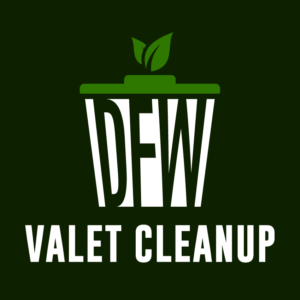Many property owners overlook valet trash services as a simple, high-value amenity that can generate consistent revenue while improving tenant satisfaction. Beyond just convenience, offering valet trash can create a new income stream, reduce maintenance costs, and make your property more appealing to renters.
You may leave profit on the table if you’re not offering valet trash. This blog discusses how valet trash services can increase your property’s revenue, improve tenant retention, and provide a strong return on investment.
How Valet Trash Creates a New Revenue Stream
Valet trash services offer property owners a simple way to generate consistent, recurring revenue while improving tenant satisfaction. Properties can turn waste collection into a profitable amenity with minimal effort by charging tenants a small monthly fee.
1. Charging Tenants for Valet Trash as an Amenity
Many properties include valet trash in their amenity fees or charge it separately as a convenience service. Since tenants are accustomed to paying for premium features like parking, pet rent, and on-site gyms, adding valet trash fits naturally into a property’s service offerings.
- Bundled in Lease Agreements – Some properties roll valet trash fees into the rent to ensure full participation.
- Standalone Amenity Charge – Others list it as an optional add-on, allowing tenants to opt in.
2. Why Tenants Are Willing to Pay for Convenience
For most residents, convenience is worth the cost. Valet trash eliminates the need to:
✔ Walk long distances to a dumpster
✔ Deal with overflowing trash areas
✔ Take out trash late at night or in bad weather
This added ease and security make valet trash an attractive lifestyle upgrade, making it easy to justify the cost.
3. The Recurring Revenue Potential for Multi-Family Properties
Since valet trash is a monthly service, it creates a predictable and scalable revenue stream for property owners.
Revenue Calculation Example
Let’s assume:
- 100 units in a property
- $25 per unit per month valet trash fee
✔ Monthly Revenue: 100 units × $25 = $2,500 per month
✔ Annual Revenue: $2,500 × 12 months = $30,000 per year
Even at a lower fee:
- 100 units at $15 per month = $1,500 per month
- Annual revenue: $18,000 per year
For larger properties (200+ units), the revenue scales up quickly, making valet trash a high-profit, low-maintenance service.
In addition to generating direct income, valet trash services help lower maintenance expenses, keep properties in top shape, and drive lease renewals by offering tenants a valuable convenience. By adopting valet trash, properties boost their profitability and enhance the tenant experience—a win-win investment.
The Financial Impact Beyond Direct Revenue
Valet trash services don’t just generate additional income—they also help properties save money and increase long-term value. This amenity has financial benefits beyond monthly fees, from reducing maintenance costs to improving lease renewals.
1. Increased Lease Renewals
A clean, convenient living experience keeps tenants satisfied, and satisfied tenants stay longer. Valet trash eliminates the frustration of overflowing dumpsters and inconvenient disposal areas, making residents less likely to move. Higher retention means:
✔ Lower turnover costs (less advertising, fewer vacancies)
✔ More stable rental income
✔ Stronger community appeal
2. Lower Maintenance Costs
Without valet trash, residents often leave garbage in hallways, stairwells, or common areas, leading to:
✔ Pest problems and sanitation issues
✔ Increased cleaning and repair expenses
✔ Additional labor costs for property staff
By collecting waste consistently, valet trash reduces unsanitary conditions and helps maintain the property’s appearance and functionality.
3. Boosting Property Value
Premium amenities make a property more attractive to renters and investors. A well-maintained, amenity-rich community commands higher rental rates and increases property value over time. Valet trash adds to the luxury appeal, signaling a well-managed, service-oriented living environment.
Comparing the Cost vs. Profitability of Valet Trash
Valet trash is among the few high-margin amenities that generate steady revenue with minimal operating costs. Let’s break down operating expenses, revenue potential, and ROI to understand its full financial impact.
1. Calculating Operating Costs vs. Revenue Generation
To determine the profitability of valet trash, property owners need to compare monthly costs with expected revenue.
Operating Costs Typically Include:
✔ Service fees paid to the valet trash provider
✔ Trash bins and bags (if provided by the property)
✔ Marketing materials to inform tenants about the service
Example: Cost vs. Revenue Breakdown
Let’s assume:
- 100 units in a property
- $25 per unit per month charged to tenants
- $8 per unit per month paid to a valet trash provider
✔ Total Monthly Revenue: 100 units × $25 = $2,500
✔ Total Monthly Cost: 100 units × $8 = $800
✔ Net Monthly Profit: $1,700
✔ Annual Net Profit: $20,400
With a minimal per-unit cost, valet trash offers a high return on investment with a steady cash flow.
2. Why Valet Trash is a Low-Maintenance, High-Margin Service
Unlike other amenities that require upkeep, repairs, or staffing, third-party providers fully manage valet trash. This means:
✔ No added responsibility for property managers
✔ No need for expensive infrastructure upgrades
✔ Predictable operating costs with minimal variability
Once implemented, the service runs smoothly in the background, making it an effortless income stream for property owners.
3. Understanding ROI and Long-Term Financial Benefits
Valet trash pays for itself quickly and offers ongoing financial benefits beyond direct revenue. The return on investment (ROI) comes from:
✔ Recurring revenue from tenant fees
✔ Lower maintenance and janitorial costs
✔ Increased lease renewals due to improved tenant satisfaction
Since valet trash services scale with occupancy, the more units a property has, the higher the profitability. Over time, the revenue generated can offset other property expenses and improve overall net operating income (NOI).
How to Implement a Profitable Valet Trash Program
Now that we’ve broken down valet trash’s financial benefits and profitability, the next step is implementing a program that works. A well-executed valet trash service maximizes revenue, improves tenant experience, and reduces operational hassle.
Property managers must focus on choosing the right provider, setting competitive pricing, and effectively marketing the service to residents to ensure success.
1. Choosing a Reliable Valet Trash Provider
A profitable valet trash program starts with a vendor you can trust. The right provider will:
✔ Offer flexible pickup schedules tailored to your property’s needs
✔ Have a track record of consistent and professional service
✔ Be fully licensed and insured to protect your property
✔ Provide transparent pricing with no hidden fees
Partnering with a reputable company ensures smooth operations and a positive tenant experience, leading to higher retention rates and a better return on investment.
2. Setting Competitive Pricing for Your Tenants
To balance profitability and affordability, valet trash pricing should be:
✔ Reasonable—Aligning with tenant expectations for premium amenities
✔ Profitable—Covering vendor costs while ensuring steady revenue
✔ Predictable—Bundled into lease agreements or community fees
Most properties successfully charge $20–$30 per unit per month, which tenants find justifiable for the added convenience, cleanliness, and security valet trash provides.
3. Educating Residents & Marketing the Service Effectively
Even the best valet trash program won’t be successful if tenants don’t understand the value. Property managers should:
✔ Introduce the service at lease signing and include it in amenity packages
✔ Send clear communication via newsletters, emails, or welcome guides
✔ Highlight key benefits such as time savings, cleaner common areas, and ease of use
With proper education and promotion, valet trash becomes an expected and appreciated service, further boosting tenant satisfaction and lease renewals.
Conclusion
Valet trash is more than just an amenity—it’s a profitable, low-maintenance investment that benefits property managers and residents.
With predictable recurring revenue, reduced maintenance costs, and improved tenant retention, valet trash is an easy way to increase a property’s bottom line.
If you’re ready to turn valet trash into a valuable income stream, now is the time to act.
Call DFW Valet Cleanup at +1 (469) 554-9023
Email us at contact@dfwvaletcleanup.com
Let DFW Valet Cleaners help you implement a profitable valet trash program that delivers real financial results.











